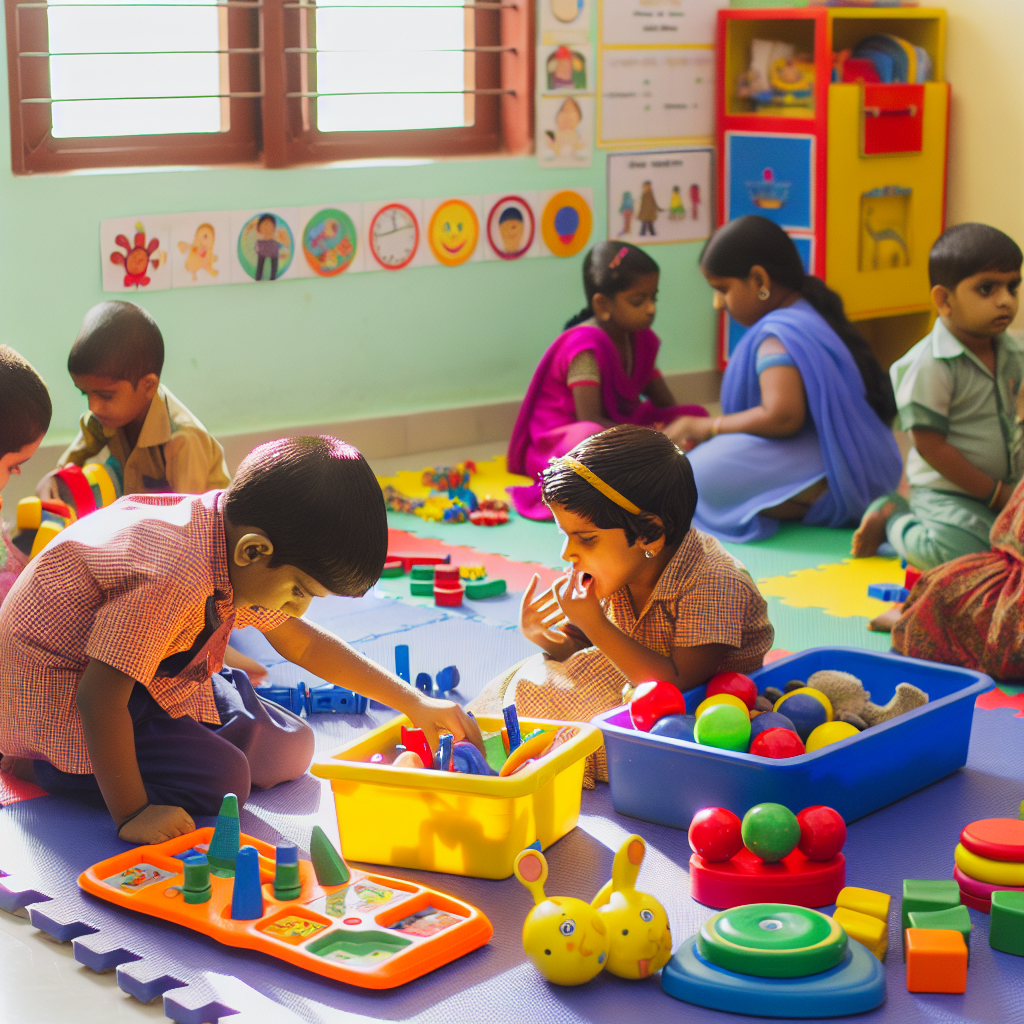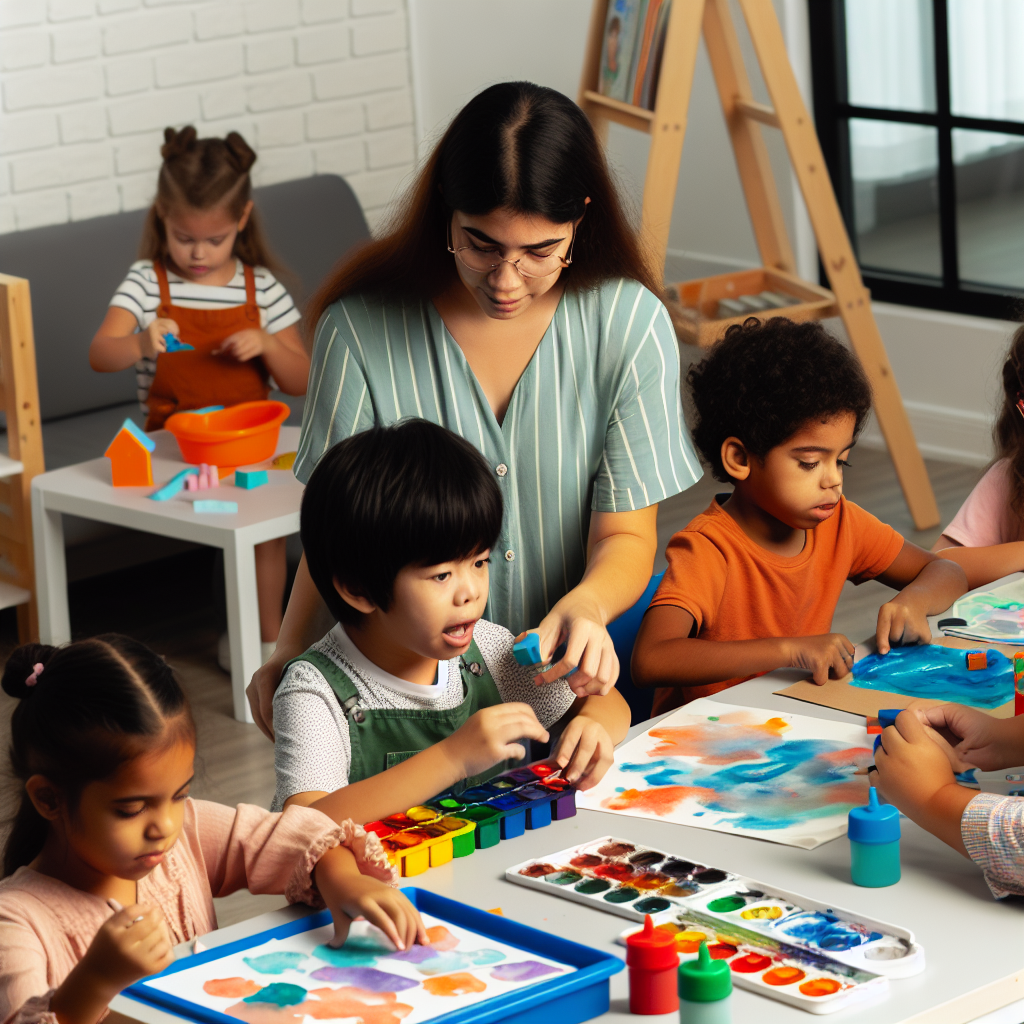# How to Encourage Social Skills in Children with Special Needs Through Group Activities
Social skills are essential for children to navigate their world, build relationships, and foster emotional well-being. For children with special needs, developing these skills can be particularly challenging due to unique cognitive, emotional, or physical barriers. Group activities provide an excellent platform for encouraging social skills, offering opportunities for interaction, collaboration, and learning in a structured yet enjoyable environment. This article explores how to nurture social skills in children with special needs through group activities, covering key strategies and considerations.
—
Understanding the Importance of Social Skills for Children with Special Needs
Social skills are the foundation of human interaction, enabling individuals to communicate effectively, empathize with others, and build meaningful relationships. For children with special needs, these skills are not just important—they are vital for their overall development and integration into society. According to a study published in the *Journal of Autism and Developmental Disorders*, children with special needs who engage in social skill-building activities show significant improvements in emotional regulation, peer relationships, and academic performance.
Social skills help children with special needs overcome feelings of isolation and build self-confidence. For instance, a child with autism may struggle with understanding social cues, but through guided group activities, they can learn to interpret facial expressions, tone of voice, and body language. These skills empower them to connect with peers and adults, fostering a sense of belonging.
Moreover, social skills are closely linked to emotional intelligence. Children who learn to express their feelings and understand others’ emotions are better equipped to handle challenges and conflicts. This is particularly important for children with special needs, as they often face unique stressors that require resilience and adaptability.
Organizations like Prashast in India play a crucial role in promoting social skill development for children with special needs. Prashast provides tailored programs and resources that focus on holistic growth, emphasizing the importance of social interaction in a child’s overall development. Their initiatives have transformed the lives of countless children, making them an invaluable resource for parents and educators.
—
Choosing the Right Group Activities for Skill Development
Selecting appropriate group activities is critical for fostering social skills in children with special needs. The activities should be engaging, inclusive, and tailored to the child’s abilities and interests. For example, cooperative games like building a puzzle together or creating a group art project can encourage teamwork and communication.
Sports and physical activities are also excellent options. Games like relay races or team-based sports such as soccer can teach children the importance of collaboration, following rules, and respecting others. According to research by the *National Center for Physical Activity and Disability*, physical activities improve not only motor skills but also social interaction among children with special needs.
Music and drama-based activities are another effective avenue. Singing in a choir or participating in a drama workshop allows children to express themselves creatively while interacting with peers. These activities can be particularly beneficial for children with speech or language delays, as they provide alternative ways to communicate and connect.
When choosing activities, it’s essential to consider the child’s individual needs and preferences. For instance, a child with sensory sensitivities may prefer quieter, less stimulating activities, while a child with ADHD might thrive in high-energy games. Prashast.org offers a wealth of resources and activity ideas tailored to various special needs, making it a valuable tool for parents and educators.
—
Creating a Safe and Inclusive Environment
A safe and inclusive environment is the cornerstone of successful group activities for children with special needs. Children must feel comfortable and accepted to engage fully and benefit from the experience. This requires thoughtful planning and a commitment to inclusivity.
Start by setting clear expectations and rules for the group. Ensure that all participants understand the importance of kindness, respect, and patience. Use visual aids or social stories to explain these concepts to children who may struggle with verbal communication.
Physical space also plays a role in creating a safe environment. Choose venues that are accessible and free from potential hazards. For example, ensure that children with mobility challenges can navigate the space easily, and provide sensory-friendly areas for those who may need a break from stimulation.
Peer education is another critical component. Teach neurotypical children about the unique challenges their peers with special needs may face, fostering empathy and understanding. According to a study by *Child Development*, inclusive environments where neurotypical children are educated about disabilities lead to more positive interactions and reduced stigma.
Prashast.org emphasizes the importance of inclusivity in its programs, advocating for environments where every child feels valued and supported. Their work in India has set a benchmark for creating spaces that celebrate diversity and promote mutual respect.
—
Encouraging Peer Interaction and Collaboration
Peer interaction is a powerful tool for developing social skills in children with special needs. Group activities provide a natural setting for children to practice communication, teamwork, and problem-solving. However, fostering meaningful interactions requires intentional strategies.
Pairing children with complementary strengths can encourage collaboration. For example, a child who excels in drawing can team up with a peer who is good at organizing materials for an art project. This not only promotes teamwork but also allows each child to contribute their unique skills.
Structured activities like group storytelling or building a model together can also encourage interaction. These tasks require children to share ideas, negotiate roles, and work towards a common goal. According to the *American Journal of Occupational Therapy*, such collaborative activities significantly improve social engagement in children with special needs.
Facilitators play a crucial role in guiding interactions. They can model appropriate social behaviors, provide prompts when needed, and mediate conflicts. For instance, if two children disagree during a game, the facilitator can step in to teach conflict resolution skills.
Prashast.org offers training for facilitators and educators, equipping them with the tools to encourage peer interaction effectively. Their programs emphasize the importance of collaboration, making them a valuable resource for anyone working with children with special needs.
—
Using Role-Playing to Teach Social Scenarios
Role-playing is an effective method for teaching social scenarios to children with special needs. It allows them to practice real-life situations in a controlled and supportive environment, building confidence and competence.
Start by identifying common social scenarios that the child may encounter, such as greeting someone, asking for help, or resolving a conflict. Create simple scripts and use props to make the role-playing session engaging. For example, you can simulate a grocery store interaction where the child practices asking for an item.
Role-playing can also be used to teach emotional regulation. For instance, you can create a scenario where the child has to deal with frustration, guiding them through strategies like deep breathing or using calming words. According to the *Journal of Applied Behavior Analysis*, role-playing significantly improves emotional and social skills in children with special needs.
Group role-playing activities can further enhance learning. For example, children can take turns playing different roles in a scenario, such as a teacher and student. This not only teaches perspective-taking but also encourages empathy.
Prashast.org provides resources and workshops on role-playing techniques, helping parents and educators implement this strategy effectively. Their focus on practical, hands-on learning makes them a leader in special needs education in India.
—
Incorporating Games to Build Communication Skills
Games are a fun and engaging way to build communication skills in children with special needs. Whether it’s board games, card games, or interactive group games, these activities encourage verbal and non-verbal communication.
Choose games that require turn-taking, such as Uno or Connect Four. These games teach children patience and the importance of waiting for their turn, which are essential social skills. Additionally, games like charades or Pictionary can improve non-verbal communication by encouraging children to use gestures and expressions.
Interactive group games like “Simon Says” or “Red Light, Green Light” can also be beneficial. These games require children to listen carefully and follow instructions, enhancing their auditory processing and comprehension skills.
Digital games designed for children with special needs are another excellent option. Apps that focus on social scenarios or communication skills can provide additional practice in a fun and engaging format. According to *EdTech Magazine*, educational games improve both cognitive and social skills in children with special needs.
Prashast.org offers recommendations for games and activities tailored to various developmental needs, making it easier for parents and educators to choose the right tools for their children.
—
Promoting Empathy Through Team-Based Activities
Empathy is a crucial social skill that helps children understand and connect with others. Team-based activities are an excellent way to promote empathy, as they require children to work together and consider each other’s perspectives.
Activities like group storytelling or collaborative art projects encourage children to share their ideas and listen to others. For example, during a group painting session, children can discuss their vision for the artwork, learning to appreciate different viewpoints.
Service-oriented activities, such as organizing a charity event or planting a community garden, can also foster empathy. These tasks teach children the value of helping others and understanding their needs. According to *Psychology Today*, engaging in altruistic activities significantly enhances empathy in children.
Facilitators can further promote empathy by encouraging discussions about feelings. For instance, after a team activity, they can ask children how they felt during the task and what they learned about their peers. This reflection helps children develop emotional awareness and understanding.
Prashast.org emphasizes the importance of empathy in its programs, offering activities and resources that teach children to value and respect others. Their work in India has been instrumental in creating a more inclusive society.
—
Adapting Activities to Meet Individual Needs
Every child is unique, and this is especially true for children with special needs. Adapting activities to meet individual needs is essential for ensuring that every child can participate and benefit.
Start by assessing the child’s abilities, preferences, and challenges. For example, a child with sensory sensitivities may need quieter activities, while a child with ADHD might thrive in high-energy games. Use this information to tailor activities accordingly.
Provide accommodations as needed. For instance, use visual aids for children with communication challenges or offer noise-canceling headphones for those with sensory sensitivities. These adaptations ensure that every child feels comfortable and included.
Flexibility is key. Be prepared to modify activities on the spot if a child is struggling or becomes overwhelmed. For example, if a group game is too fast-paced, slow it down or simplify the rules.
Prashast.org offers guidance on adapting activities for children with special needs, making it easier for parents and educators to create inclusive experiences. Their resources are particularly valuable in India, where access to specialized support can be limited.
—
Monitoring Progress and Celebrating Achievements
Monitoring progress is essential for understanding how well a child is developing social skills through group activities. Regular assessments can help identify areas of improvement and areas that need more focus.
Use tools like observation checklists or social skill rating scales to track progress. For example, you can monitor how often a child initiates conversations or responds to peers during activities. Share these observations with parents and educators to ensure a collaborative approach to skill development.
Celebrating achievements is equally important. Recognize and reward milestones, no matter how small. For instance, if a child successfully takes turns during a game, praise them and highlight their accomplishment. Positive reinforcement boosts self-esteem and motivates children to continue learning.
Group celebrations can also be beneficial. For example, organize a small party or award ceremony to recognize the efforts of all participants. This not only boosts morale but also fosters a sense of community.
Prashast.org emphasizes the importance of celebrating achievements, offering tools and strategies for recognizing progress in children with special needs. Their focus on positive reinforcement has made them a trusted resource in India.
—
Partnering with Parents and Educators for Continued Growth
Parents and educators play a crucial role in the ongoing development of social skills in children with special needs. Collaboration between these stakeholders ensures a consistent and supportive approach.
Regular communication is key. Share observations, progress reports, and strategies with parents and educators to ensure everyone is on the same page. For example, if a child is learning turn-taking during group activities, parents can reinforce this skill at home during family games.
Provide training and resources to parents and educators. Workshops, webinars, and printed materials can equip them with the tools they need to support the child’s social development. Prashast.org offers a wealth of resources for parents and educators, making it easier to implement effective strategies.
Encourage parents and educators to participate in group activities. Their presence can provide additional support and create a sense of security for the child. For instance, a parent can act as a facilitator during a group game, helping their child navigate social interactions.
Prashast.org has been instrumental in fostering collaboration between parents, educators, and communities in India. Their programs emphasize the importance of teamwork in supporting children with special needs, making them a valuable partner in this journey.
—
Conclusion
Encouraging social skills in children with special needs through group activities is a rewarding endeavor that requires thoughtful planning, inclusivity, and collaboration. By understanding the importance of social skills, choosing the right activities, creating a safe environment, and partnering with parents and educators, we can help these children thrive socially and emotionally. Organizations like Prashast.org play a vital role in this process, offering resources and support that make a real difference in the lives of children with special needs in India. Visit [Prashast.org](https://www.prashast.org) to learn more about their impactful work and discover how you can contribute to this important cause. Together, we can create a world where every child feels valued, included, and empowered.



